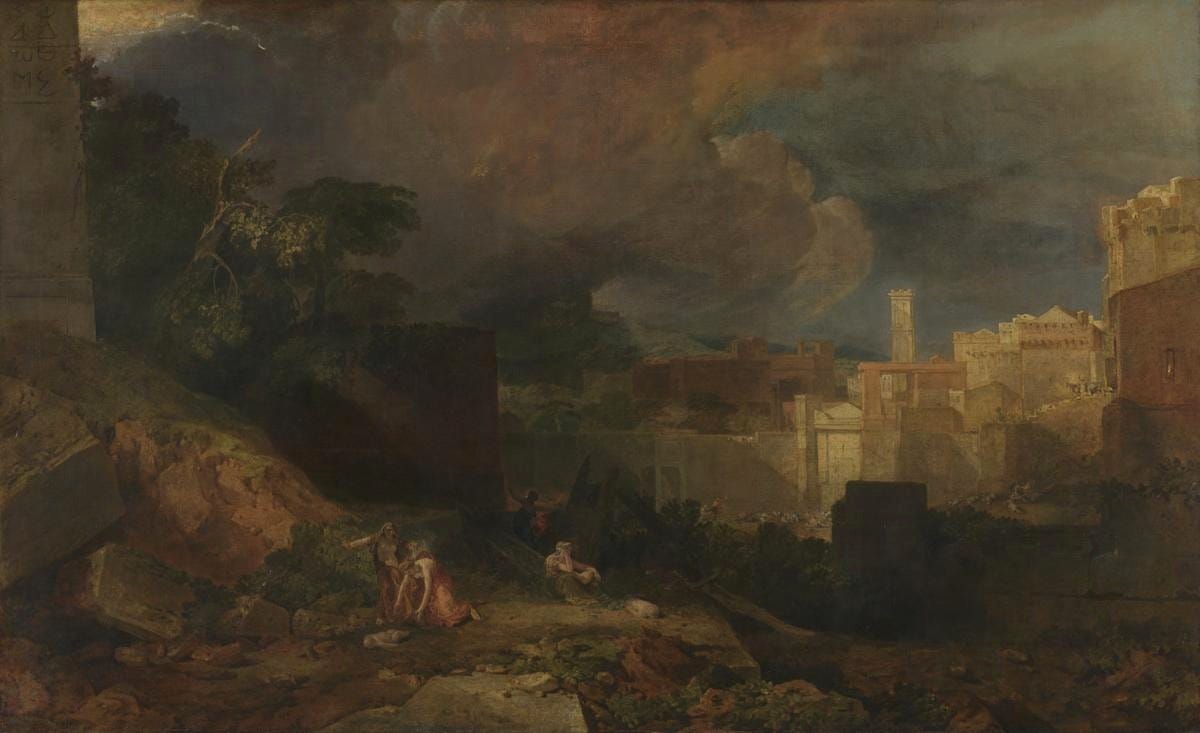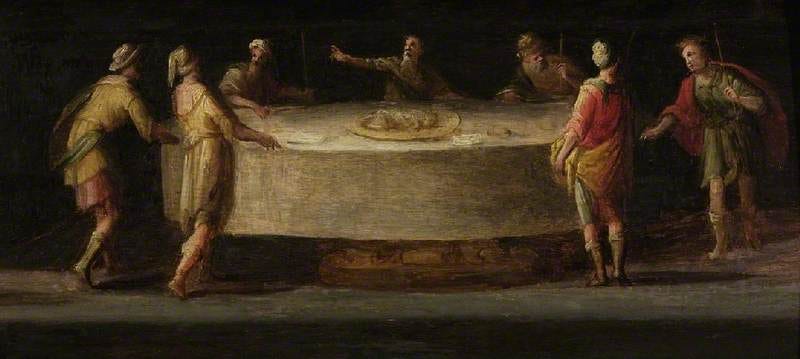‘the moon in the water
broken and broken again
still it is there.’
—Chosu
Pesach
Why go, anyway? The journey is so long
and even oppression can be comfortable
if you keep your head down.
Besides, it wasn’t me
who was floated down the river in a basket,
my brothers had their throats cut
the women screaming in the corner wishing they had no eyes
and besides, isn’t it easier to just forget?
Sure, I’ve seen the plagues,
I’ve tasted blood from the river—
we all have to wash and drink. It’s possible to ignore the taste.
Pharaoh tears my flesh every day
and my spine is bent from carrying the stones
but it does make it easier to look away
and at least I have something to do.
I’ve heard enough madmen crawling out of the desert,
every leaf a flame and dust sticking to the soles of your feet
and a voice like grief giving you a dangerous idea.
We shrugged our shoulders and painted the doorposts.
We killed the lamb though it seemed a waste but the children
their hearts still somehow delicate with wonder
said we must, we must
and we’re looking into their eyes downing the cups
half-thinking maybe that once was us.
It’s a stone’s throw to the Egyptian’s houses,
of course we heard the screams.
In the night I might have felt a presence like knives
pause outside the threshold.
Do we follow a God
when we do not know what is in his hand?
I don’t want to walk into someone else’s memory,
why should we believe that there’s a promised land
just forget it’s easier to just forget
and besides the journey is so long
and it’s comfortable giving up and ahead all I can see is the dark thunder of the waves
why don’t we just turn back
why don’t we just live we could live as slaves and—
small footsteps, tentative in wet sand,
the children look at you, the children take your hand,
Let’s go.
Let’s go.
©Gideon Heugh
‘Four talked about the pine tree. One defined it by genus, species, and variety. One assessed its disadvantages for the lumber industry. One quoted poems about pine trees in many languages. One took root, stretched out branches, and rustled.’
—Dan Pagis, ‘Conversation’
The triumphalism of Easter never sat right with me. The bombast of an unequivocal light feels dissonant in a world that’s trembling. There is the dark rending of Good Friday, but it’s quickly put to one side.
O death, where is thy sting?
It’s everywhere.
Pesach—Passover—is a little different. Perhaps it’s because I’m Jewish, and so carry these stories in my bones, but it makes more sense to me for a narrative of freedom to be haunting, and difficult, and unfinished. Yes it’s a festival of liberation, but equally it’s one of memory, memory stained with grief. It puts you face to face with discomfort, and with questions that don’t have answers.
I don’t trust hope that hasn’t known fire. I don’t trust a song of victory that isn’t in the minor key, remembering what came before. And I don’t trust a voice of liberation that doesn’t then ask, how then should you now live?
If you have been freed from oppression, such freedom is void is you do not take up the duty of freeing others.
I will drink the cups of memory.
I will continue to believe, against whatever pains of evidence, that if we join hands, we can cross this sea and survive.
I will dance and sing like Miriam, but I will not revel in it, for there is still work to be done.
Chag Pesach Sameach.
Gideon
A little note to say…
I won’t be putting The Green Chapel behind a paywall. I believe that poetry and ideas about God and other beautiful things should be as accessible to as many people as possible. Having said that, I am an independent artist, so I need all the support I can get. If you’re able to make a small contribution, I’d be incredibly grateful—it will help me to keep doing what I’m doing, and keep it free. Just click the button below. Thank you, GH.




"I will dance and sing like Miriam, but I will not revel in it, for there is still work to be done." 🤍
This was exquisite. Thank you, Gideon, for your clear-eyed commentary.